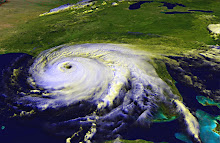I turned on the radio last night to listen to the news, and I heard a horrible story. A mother and adult son died in their home because of a fire that is still under investigation, but friends say that space heaters used in the home were probably to blame. The family dog probably perished as well.
Right after that story, they reported on another house fire where thankfully, no one was hurt, but the home sustained major fire, smoke and water damage. That one was caused by ash or debris flying out of the fireplace, alighting combustible material nearby.
When I started looking for the details on those two fires, I found a report of another blaze that destroyed a home this morning. The cause is under investigation, but the fire chief believes space heaters are to blame. No one was physically hurt, but the residents are homeless now.
That article contained information on another situation where the house didn't burn, but smoke was backing up in the home because the fireplace flue wasn't opened correctly -- a fire waiting to happen, and certainly if the people who lived there had been asleep with no working alarm, they could have perished from the smoke. All this reminds of a story from a few years ago, when a woman and her daughter died in a fire. They were on disability, as I recall, and they didn't have electricity in their home. We were in a really cold snap, as we are this week, and they were trying to stay warm by burning a fire in a metal drum. This is always the most dangerous time of year for house fires in Northwest Florida. We're experiencing the first sustained cold temperatures of the year, and in addition to trying to stay warm, people are distracted with the holidays, they're cooking more, they're adding Christmas trees and holiday lights into the mix, and the risk shoots up.
Here are my safety tips, which I have learned from years in the news business.
The space in "space heater" is the space you need to leave around it. Many fires begin when a heater gets tipped over (newer ones will automatically shut off when knocked over). Other fires start because a blanket or clothes or anything flammable ends up on top of the heater. Make sure your space heater is in a clear area, and check it frequently to make sure a child, pet or the wind doesn't create a fire hazard by putting something flammable near or on the heater.
If you must burn a fire: be sure that your chimney is clean, the flue is functioning correctly and it's open, you have clear space in front of the fireplace, and you have a good fireplace screen to catch ash that might flight out. Please, never burn a fire indoors in anything other than a fireplace or properly installed wood-burning stove. Properly installed means it has venting to take the smoke outside. A smoky room can kill you, too, plus if it's not venting out, that means the risk of hot ash is higher in the house as well.
Have your heating system serviced and cleaned annually. Carbon monoxide is the silent killer. Whole families die in their sleep from dirty heating systems or leaks.
Read the labels on electronics, appliances and holiday lights. Make sure you're not overloading your outlets. Use surge protectors. Make sure cords are out of the way. Check once in a while to make sure the cords, outlets, and power strips aren't hot to the touch. Major open flame fire hazard: blowing curtains. When you're lighting candles or building a fire, take a moment to step back and survey the surroundings with an eye to safety. Is there anything flammable nearby? Are there papers, lightweight materials or toys that could get blown or knocked into the flames? Never, ever leave the house with a fire burning or candles lit.
Here are some more links to fire safety tips:
Underwriters Laboratories: Top 10 Tips for Safer Holidays
Underwriters Laboratories: Christmas Tree Fire Video - It only takes a minute
National Fire Protection Association: Put a Freeze on Winter Fires
U.S. Fire Administration: Holiday Fire Safety
My tips are mostly on preventing fires. If the worst happens, are you prepared? Do you have: working smoke detectors? a family escape plan? copies of important documents, such as identification and insurance records, off site? Thinking about what you would do -- how you would get out, how you'd make sure your family members are all safe and accounted for -- will ease your mind in the event of an emergency. It's easier said than done sometimes, but most possessions can be replaced. Sure, if your house burns, you may lose precious mementos, but as hard as they are to lose, they are just things. The truly important thing is that your family members get out alive.
Underwriters Laboratories is running a promotion with several bloggers right now. I am not one of those bloggers. I receive no compensation from anyone for any part of this post. I only mention it because I did learn about UL's online fire safety tips through one of these blogs, and I don't want there to be any confusion. Stay safe.


No comments:
Post a Comment